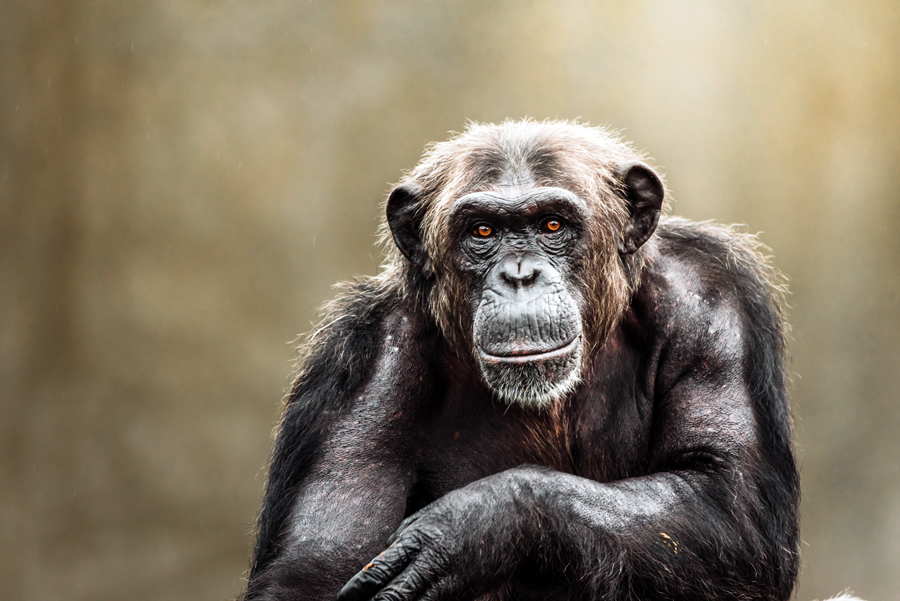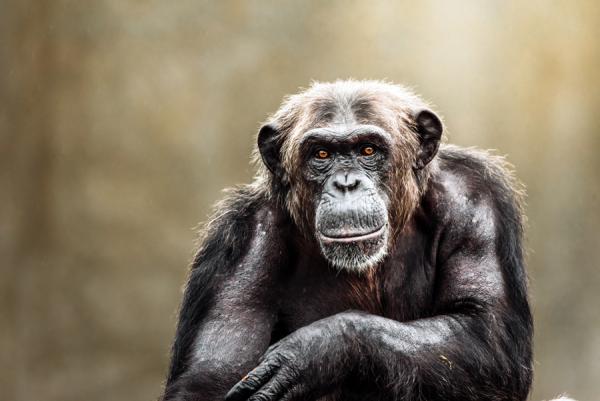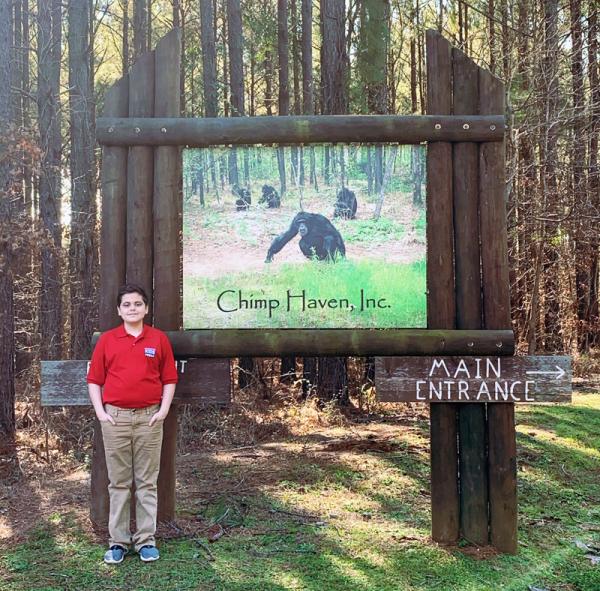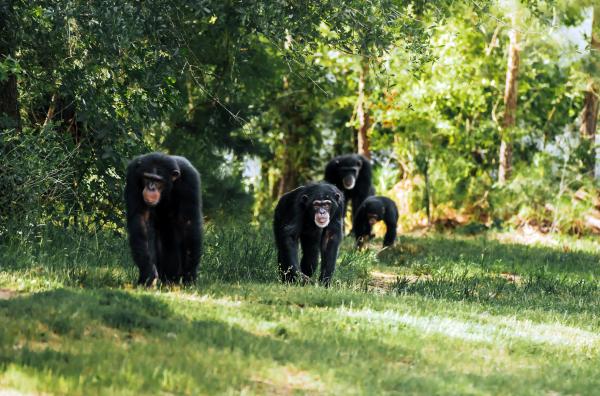KID REPORTERS’ NOTEBOOK
Relaxing at Chimp Haven


Taffy celebrates her birthday at Chimp Haven in Keithville, Louisiana.
As the sun rises over the tall pine trees in Keithville, Louisiana, about 300 chimpanzees slowly wake up and start their day. The animals live at Chimp Haven, the world’s largest chimpanzee sanctuary. There, they can enjoy more than 200 forested acres with a complex labyrinth of habitats.
In 2000, the United States Congress passed the CHIMP Act, which stands for the Chimpanzee Health Improvement, Maintenance, and Protection Act. It was designed to protect chimpanzees that had been used by the government for medical research.
“The law created funding to support the care of chimps in their retirement,” Kevin Kilbride, a media relations official, told me during my recent visit to Chimp Haven. The government chose Chimp Haven, a nonprofit organization founded in 1995, to provide sanctuaries for the chimpanzees.

Truman visits Chimp Haven, a sanctuary in Keithville, Louisiana.
PLAYING IN GROUPS
More than 60 employees work around the clock at Chimp Haven in Keithville to ensure the health and well-being of the animals in their care.
“The chimps are housed in groups to try and replicate nature as closely as possible,” explained Samantha Steele, a veterinary technician. “They have access to the trees and climbing areas, but they can also go into the bedrooms, if they prefer.”
Chimpanzees, which are native to Africa, love to climb trees. At the sanctuary, they’re given a varied diet, which includes fruits, starches, leafy greens, and other vegetables.

Chimpanzees love to socialize and play in groups.
LIVING THEIR BEST CHIMP LIFE
During my visit, I noticed a group of chimps lounging in the sun and interacting with one another. They are extremely social animals and have distinct personalities.
“We use a variety of items, including stuffed animals and books, for daily enrichment activities,” said Jordan Green, a behavior technician. “It’s really cool to see their preferences in activities. Some even enjoy watching movies.”
The government ended all federally-funded biomedical research in 2015. More chimpanzees in research facilities are now awaiting a home, and Chimp Haven is undergoing a large expansion project.
The sanctuary is not open to the public, but visitors are welcome on Chimpanzee Discovery Days throughout the year. The next opportunity to observe the chimps and learn more about them is Saturday, March 14.
